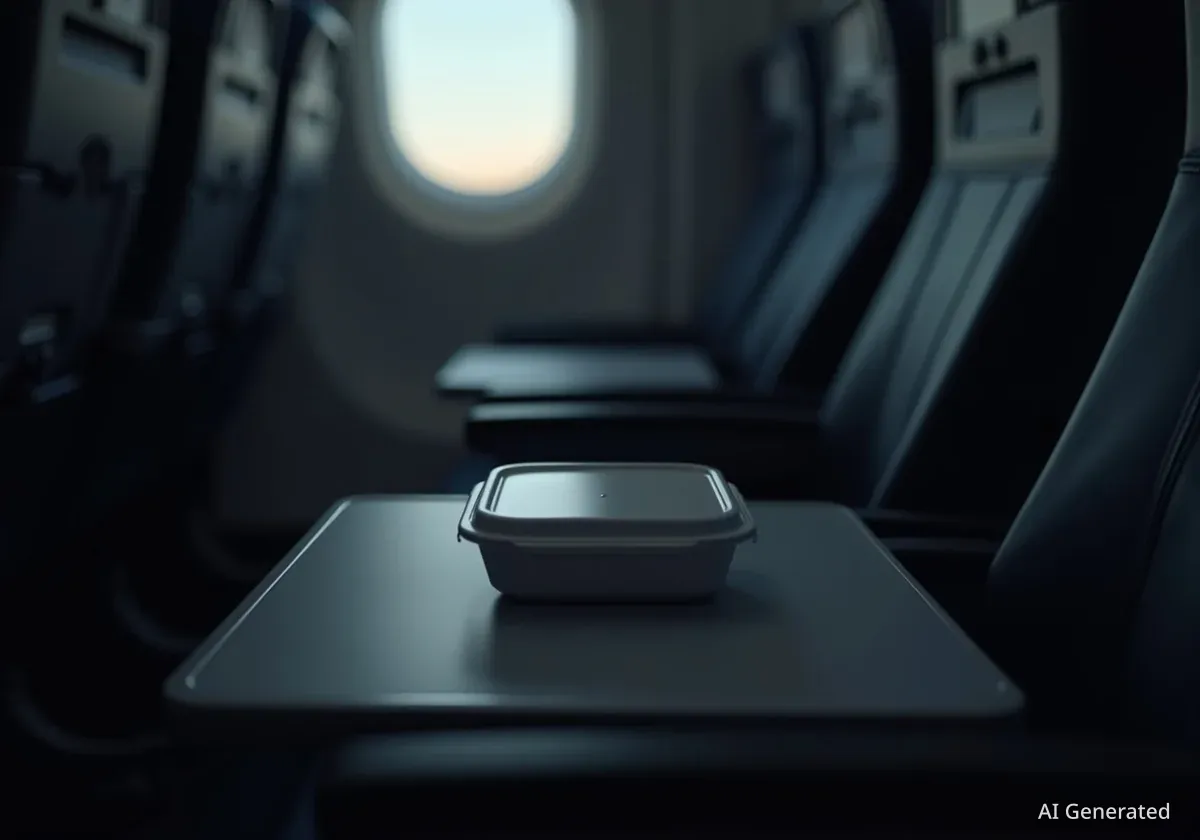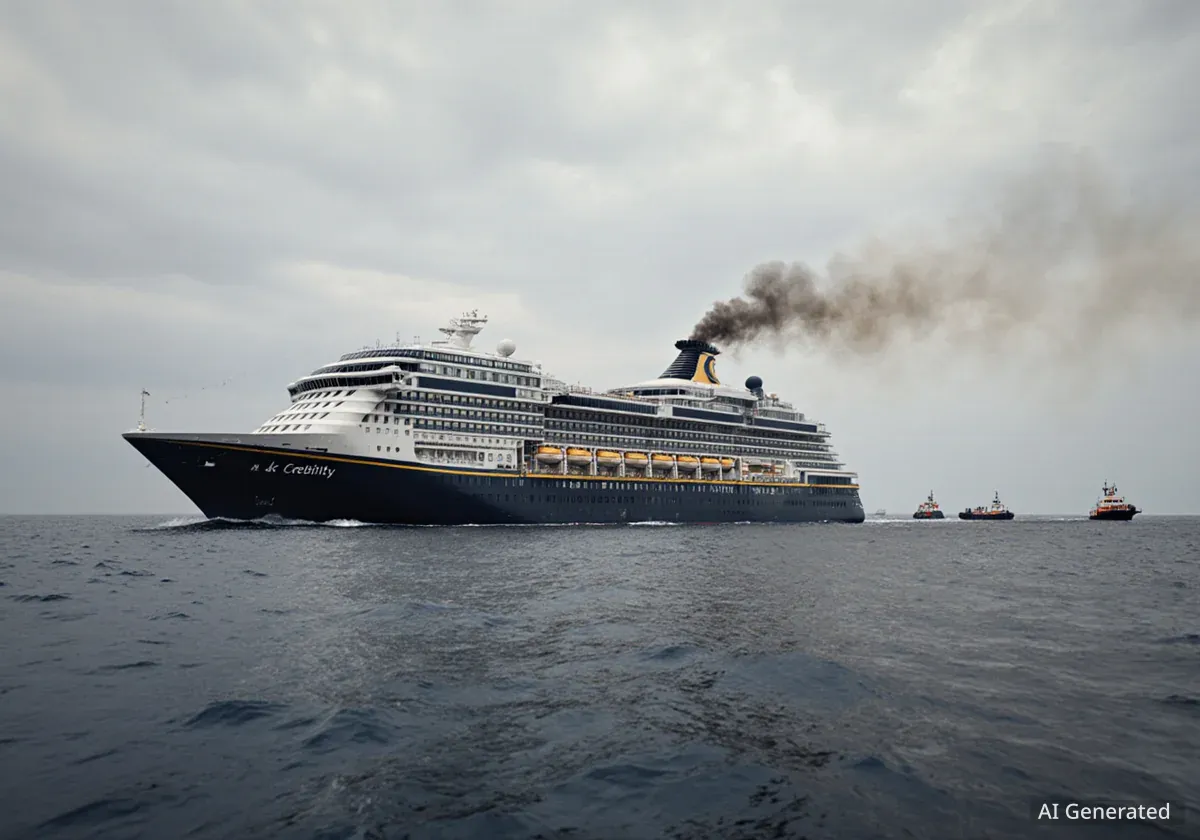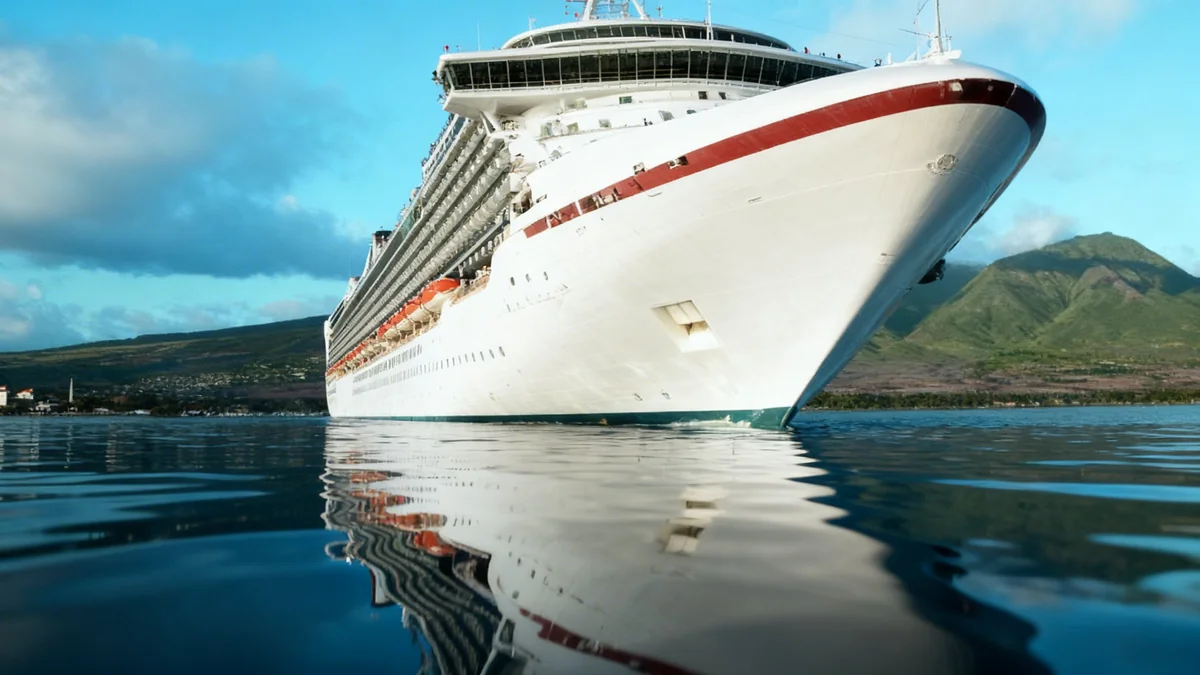Qatar Airways is facing a wrongful death lawsuit after an 85-year-old Southern California man, Asoka Jayaweera, died following complications from consuming a meat-based meal he was mistakenly served on a long-haul flight. Mr. Jayaweera, a strict vegetarian, allegedly choked while attempting to eat around the meat in the meal he received.
The incident occurred during a flight from Los Angeles International Airport (LAX) to Colombo, Sri Lanka, with a planned stop at Hamad International Airport (DOH).
Key Takeaways
- An 85-year-old vegetarian passenger died after being served a meat meal on a Qatar Airways flight.
- The lawsuit alleges negligence and wrongful death against the airline.
- Crew reportedly told the passenger to "eat around" the meat.
- An emergency landing was made in Edinburgh, Scotland, after the passenger lost consciousness.
- The lawsuit disputes the flight crew's initial claims about the aircraft's location for diversion.
Lawsuit Alleges Negligence and Wrongful Death
The lawsuit, filed in a California federal court, centers on claims of airline negligence and wrongful death. It states that Qatar Airways failed to provide Mr. Jayaweera with his pre-ordered vegetarian meal. Instead, he was allegedly given a non-vegetarian option.
According to the legal documents, flight staff instructed Mr. Jayaweera to "eat around" the meat in the meal. Shortly after this, he began choking and lost consciousness. The incident happened approximately two and a half hours into the flight, as per the complaint filed by his son, Surya Jayaweera.
Key Facts
- Passenger: Asoka Jayaweera, 85
- Route: Los Angeles (LAX) to Colombo (CMB), via Doha (DOH)
- Incident: Alleged choking after consuming meat in a mis-served meal
- Condition: Oxygen saturation dropped to 69%, remained unresponsive for over three hours
- Diagnosis: Aspiration pneumonia
In-Flight Emergency Response
Despite the flight crew's efforts to assist Mr. Jayaweera using medical equipment and remote guidance from MedAire, his condition worsened. The Independent reported that his oxygen saturation levels dropped to a critical 69%. He remained unresponsive for more than three hours.
The aircraft then made an emergency landing in Edinburgh, Scotland. Mr. Jayaweera was later diagnosed with aspiration pneumonia, a lung infection caused by inhaling food or liquid. This condition ultimately led to his death.
Disputed Flight Path and Diversion Claims
A significant point of contention in the lawsuit involves the flight crew's initial communication regarding the aircraft's location. The crew reportedly told Mr. Jayaweera's travel companion that a diversion was not possible because the plane was over the Arctic Ocean.
However, the lawsuit disputes this statement. It claims that the flight path at the time placed the aircraft over the U.S. Midwest, specifically Wisconsin. In this location, an emergency landing would have been feasible.
"The delay in diversion, according to the complaint, contributed significantly to the victim’s death."
Aspiration Pneumonia Explained
Aspiration pneumonia is a serious lung infection. It occurs when food, stomach acid, or saliva is inhaled into the lungs instead of being swallowed into the stomach. This can lead to inflammation and infection. Older adults, especially those with swallowing difficulties, are at higher risk.
Qatar Airways' Meal Policies Under Review
Qatar Airways offers a wide range of special meal options to its passengers. The airline provides up to 19 different choices, including seven meat-free selections. These options cater to various dietary and religious requirements.
Despite these offerings, there have been several recent reports concerning food-related incidents on Qatar Airways flights. These incidents include allergic reactions stemming from mislabeled meals. This lawsuit brings renewed attention to how airlines handle catering protocols.
Specifically, it highlights the importance of accurate special dietary accommodations. The case also raises questions about communication during in-flight medical emergencies and the criteria used for making mid-air diversions.
Airline Meal Offerings
- Qatar Airways provides up to 19 special meal options.
- This includes seven meat-free choices.
- Recent reports have cited allergic reactions due to mislabeled meals.
Implications Under the Montreal Convention
Both Qatar and the United States are signatories to the Montreal Convention. This international treaty governs airline liability for injury or death claims. Under this convention, Qatar Airways faces a statutory payout cap of approximately $175,000 for such claims.
However, Surya Jayaweera is seeking damages that exceed this limit. His claim includes court fees, attorney costs, and pre-judgment interest. As of now, Qatar Airways has not publicly commented on the lawsuit.
Legal proceedings are expected to clarify whether failures in protocol or miscommunications contributed to the fatal outcome. The case may establish a precedent for future claims related to special meals and emergency medical procedures on international flights.
The lawsuit underscores the critical need for accurate meal handling, effective real-time medical response capabilities, and comprehensive flight crew training. These elements are essential for managing life-threatening emergencies at cruising altitudes.
The Montreal Convention
The Montreal Convention is an international treaty adopted in 1999. It unifies certain rules for international carriage by air. It sets limits on liability for airlines in cases of passenger death or injury, as well as baggage and cargo damage or loss. The convention aims to modernize and consolidate various aviation liability agreements.
Looking Ahead
The Jayaweera case could influence how airlines manage special dietary requests and medical emergencies in the future. It emphasizes the importance of clear procedures and proper training for flight crews. The outcome of this lawsuit will be closely watched by the aviation industry and passenger advocacy groups.
Maintaining safety standards and ensuring passenger well-being are paramount responsibilities for all airlines, especially on long-haul international routes.





